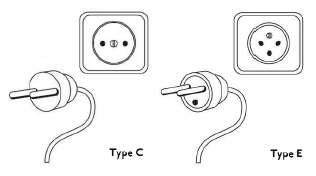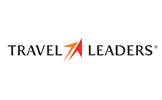POLAND

Fun Facts From Globus Tours
- The name “Poland” originates from the tribe “Polanie”, which means “people living in open fields”.
- The majority of the people in Poland follow Roman Catholicism.
- In 1989 Poland held its first free elections in more than 40 years.
Europe’s 9th largest country…with a population of more than 38 million and a territory of 120,000 square miles, Poland occupies the fertile flatlands between the Carpathians in the South and the Baltic Sea in the North. Its central location, with Germany as its western neighbor, and Russia as its eastern one, gave cause to a millennium of wars, devastation, and hard-won victories. From the small duchy of Poznan in the 10th century to a kingdom twice the size of France in the 16th century, to the oblivion of the state in 1795, Poland’s rebirth of a republic, three times smaller than before, was by no means smooth sailing. It has been rocked by two wars and struggles for better living conditions, resisting communist rule.
Its tough history has forged a strong, resolute people. Famous citizens include Nicolaus Copernicus, the brave 16th-century scholar with his heretic theories about space and our place in it; Frédéric Chopin, composer of immortal piano music; Marie Curie (Sklodowska), twice-Nobel-Prize winner; Pope John Paul II; and Lech Walesa, the charismatic union leader of Solidarity, which managed to dent the powerful communist regime and speed up its demise.
A land of hearty food, traditional dishes include pierogi (meat-stuffed dumplings), bigos (stewed cabbage and meat), zurek (sour-rye soup), and excellent vodkas. Shoppers will enjoy seeking amber, the petrified resin of conifer trees submerged by the sea up to 50 million years ago and known as “Baltic Gold,” silver, leather, woodcarvings, dolls, and beautiful linen.
Modern, dynamic Warsaw; fascinating, medieval Krakow; thousands of glistening Mazurian Lakes; and the Bialowieza Forest Reserve, where the European bison still roam free—all this is Poland, one of the most dynamic new members of the European Union.
VISAS, PASSPORTS, AND OTHER ENTRY REQUIREMENTS
Visas to Poland are not required for US citizens. If you hold a passport from another country, please check with your local consulate about requirements for travel to Poland. All passengers traveling internationally are required to have a passport. Please carry proper identification (your passport) on you and do not leave it in your suitcase or hotel room.
It is advisable to carry your passport with you at all times.
COUNTRY CODES
The country code for Poland is 48. When calling to Poland from overseas, dial your international access code (011 from the US/Canada), followed by the country code, area code, and phone number. Phone numbers in Poland are 9 digits in length. Dialing from the US/Canada: 011 48+## ### ####.
CURRENCY
The official currency of Poland is the Polish Złoty (PLN).
Bank hours: 8 a.m. to 4 p.m., Monday through Friday. Saturdays until 1 p.m. in main cities.
U.S. Dollars are generally not accepted, but if in exceptional cases they are, change will be given in the local currency (Norwegian Kroner).
1 POLISH ZLOTY (PLN or zł) = 100 Groszy
- Banknote denominations: Złoty – 10, 20, 50, 100, 200
- Coin denominations: Groszy – 1, 2, 5, 10, 20, 50; Złoty – 1, 2, 5
For the most current exchange rates, please go to our website at Globusjourneys.com/Currency.
U.S. Dollars and Euro are easy to exchange in Poland. Private currency exchange offices (Polish: Kantor) are very common and offer Euro or USD exchanges at rates that are usually comparable to commercial banks. Be aware that exchanges in tourist hot-spots, such as the train stations or popular tourist destinations, tend to overcharge. U.S. Dollars or Euro are generally not accepted for purchases, but if in exceptional cases they are, the exchange rate may not be favorable and change will be given in the local currency (Polish Złoty).
Credit cards are accepted almost everywhere in the big cities. Visa and MasterCard are much more likely to be accepted than American Express or Discover.
BUDGETING AND SHOPPING
The following budget guidelines are just approximate values or starting values for meals and are per person. Actual prices will vary widely by restaurant and city within a country but below are some averages as provided by our experienced personnel.
- The approximate cost of a soft drink/mineral water/coffee is 25-40 NOK.
- An average lunch consisting of a salad or sandwich and a soda or water starts at approximately 120-200 NOK.
- Dinner at a mid-range restaurant with dessert and a non-alcoholic beverage starts at approximately 360 NOK.
Shopping specialties: knitted sweaters, pewter, trolls, handicraft, rosemaling.
TIPPING
For restaurants and taxis, 10-15% is a reasonable amount. Tipping in Poland is very common, since gratuity is rarely included in the bill.
Beware that in Poland, if you pay for the bill with more than the amount owed and simply say “thank you” or “Dziekuje” (in Polish), it means you do not expect any change back. Tip hotel staff PLN 3-5 for room service.
ELECTRICITY AND ELECTRICAL OUTLETS
Outlets
Voltage for outlets is 230V. North American voltage is generally 110V. Therefore, you will need a converter for your travels. Adapters will be necessary to adapt your plug into the outlet, but these may not convert the voltage, so both devices are necessary.

TEMPERATURES
Poland has a temperate climate, with warm, often wet, summers, a sunny fall and cold, usually snowy, winters. To help you plan, below are average low and high temperatures for Poland.

To convert to Celsius, subtract 30, then divide by 2. While not exact, this simple formula will give a close estimation.
FOOD SPECIALTIES
Pierogi (meat-stuffed dumplings), bigos (stewed cabbage and meat), kiełbasa (Polish sausage), golabki (meat-stuffed cabbage leaves), red beet clear soup, zurek (sour-rye soup), and vodkas.
FEW WORDS OF THE LOCAL LANGUAGE
Polish:

Hello: Dzien dobry, Goodbye: Do widzenia, Please: Prosze, Thank you: Dziekuje, Yes: Tak, No: Nie, 1: Jeden, 2: Dwa, 3: Trzy, 4: Cztery, 5: Piec, 6: Szesc, 7: Siedem, 8: Osiem, 9: Dziewiec, 10: Dziesiec, Where is…?: Gdzie (jest)…?,Telephone: Telefon, Toilet: Toaleta, Tea: Herbata, Coffee: Kawa, Bottled water: Woda mineralnaw butelce, Cheers!: Na zdrowie!
U.S. DEPARTMENT OF STATE COUNTRY INFORMATION
Additional country-specific information for US citizens can be found on the US Government’s website www.travel.state.gov. Here, you can find the most up-to-date information about destination descriptions, passports/visas, safety and security, transportation, travel local laws, alerts/warnings, vaccinations, and more. For citizens of other nations, we recommend you consult your local consulate for travel information, regulations, and requirements.












